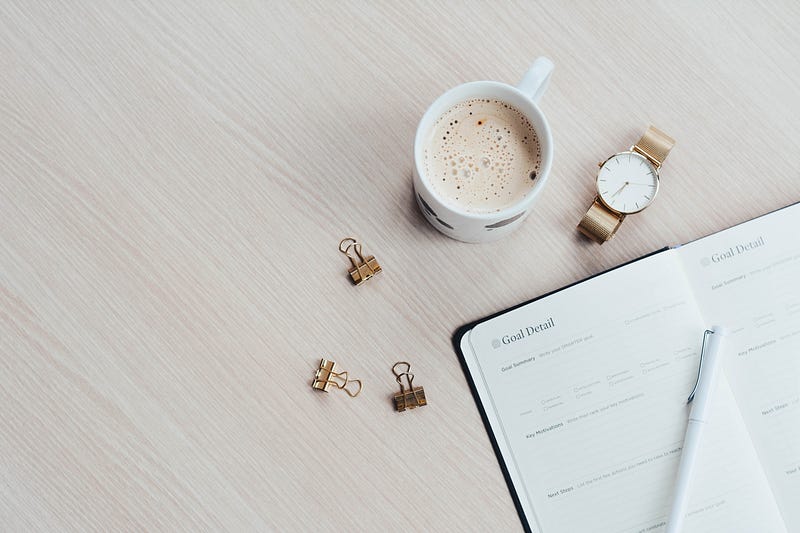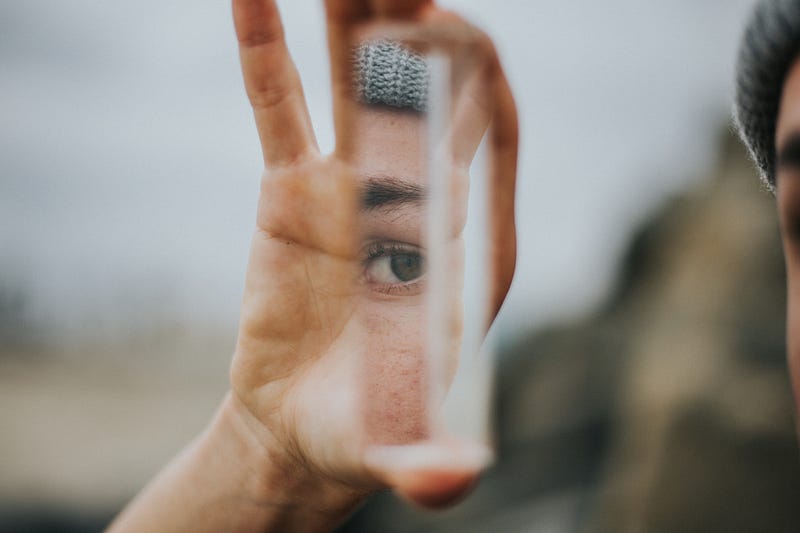Transforming My Life: 60 Days Alcohol-Free Journey
Written on
Chapter 1: Initial Struggles and Insights
I did it! I successfully completed the first 30 days, which turned out to be the toughest period as I worked to break free from old thought patterns. As I transitioned into the subsequent 30 days, it became clear to me that merely 30 days would not suffice. How often have we attempted a dry January only to fall back into previous habits or even indulge more than before? Studies indicate that forming a new habit actually requires:

Photo by Mahdi Dastmard on Unsplash
66 days
Did you guess correctly? It indeed takes around 66 days to solidify a habit. Contrary to popular belief, the notion that it takes just 21 days is a myth. Research by Phillippa Lally revealed that the duration can range from 18 to 254 days, with 66 days being the average for most individuals. I can genuinely attest to this now, reinforcing my belief in the importance of completing the full 100 days of this challenge.
After overcoming the tough initial month, I continued documenting my reflections. I noticed that certain changes were becoming ingrained while I discovered new ones, such as quicker reflexes and better recovery times. Unforeseen challenges arose, including heartbreak, which turned out to be one of my most valuable lessons. Read on to discover what unfolded.
Day 34: Discovering the Power of Routine
As the challenge progressed, I found space for more nuanced observations. My overall energy and drive to accomplish tasks surged, leading to a noticeable boost in productivity. Interestingly, I found it easier to prioritize cleaning—a specific type of productivity that had changed.
Establishing routines became more feasible, aligning with the theory of forming habits within 66 days. Exercising daily transformed from a chore into a more enjoyable activity. For the first time since my injury, I resumed running and incorporated resistance band exercises for my knee rehabilitation. I’m looking forward to returning to Brazilian Jiu Jitsu training soon.

Photo by Towfiqu Barbhuiya on Unsplash
Memory and Physical Changes
My memory has noticeably improved. I’ve come to realize that even minimal alcohol consumption may have exacerbated my ADHD symptoms, making them harder to manage. This realization connects to my struggle with dopamine deficiency—alcohol provided a temporary boost, so my brain had little incentive to engage in other activities.
Beyond mental clarity, I’ve also experienced physical benefits. My hair has become thicker, and I've lost weight. Prioritizing self-care has shifted from being an afterthought to a significant focus. This reminds me of my experience with a 3-day fasting challenge, where I sought alternatives to food as a means of self-reward. A similar transformation is occurring in my relationship with alcohol, yielding real benefits from these shifts in mindset and behavior.
Day 36: Unexpected Strengths
I feel a surge in willpower and motivation, but an unexpected new strength has emerged as well. I've noticed that I catch things before they fall and avoid accidents more frequently. My reflexes appear to be faster than before, and it’s exciting to uncover these unexpected side effects.

Photo by Content Pixie on Unsplash
The Bar Opening Experience
My mom and stepdad are launching a new business—two bars, in fact. I wanted to support them during the opening, even though it required a long journey across town. I was experiencing a low day, feeling a sense of helplessness as I navigated this pivotal moment in my life. This sober journey was not just about highs; it included its share of challenges.
By this point, I had enough experience attending events where others were drinking, which bolstered my confidence in managing the situation. I showed up, recognizing that my energy for socializing was limited, and that was perfectly acceptable. I discovered that my concerns about others’ opinions had diminished, allowing me to focus on being present for those who matter. Upon arrival, I realized that my social energy was more restricted than I had assumed, and I was more introverted than I had believed. Embracing this newfound self-awareness, I learned how emotional regulation impacts my experiences.
Day 41: Confronting Emotions
Today was challenging. Processing emotions has proven to be difficult. I recognize that where I once resorted to alcohol to alleviate stress or overwhelm, I now approach it with conscious awareness. This transformation allows me to navigate my feelings in healthier ways.
I had dinner with a friend I hadn't seen in over a year, and the time flew by, significantly lifting my spirits. She chose not to drink to support me, reinforcing the importance of socializing without alcohol in processing my emotions. While I may eventually enjoy a drink in social contexts, I now view it as an occasional treat rather than a necessity.
Day 42: Fitness Wins
Recently, I noticed two remarkable changes. Not only was I eager to go to the gym with my boyfriend during our limited time together, but I also experienced minimal Delayed Onset Muscle Soreness (DOMS) after workouts—a common issue for me. This was a huge victory.
I feel better physically, and my productivity and energy levels continue to rise.

Photo by Vince Fleming on Unsplash
Day 43: Culinary Achievements
Those familiar with the challenges of cooking, especially for those with executive function difficulties, will appreciate the significance of committing to cook. I utilized my run to gather ingredients and prepared a simple beef and aubergine tray bake. The satisfaction of knowing exactly what I was consuming in the following days was incredibly rewarding.
Day 44: Establishing a Routine
I now have a more structured routine than I have had in years, especially since becoming a full-time freelancer. I’ve established morning and nighttime rituals, which is practically unheard of for me. I realize that my life’s structure had gradually unraveled without my noticing, like a poorly knitted sweater coming undone.
I took spontaneity to an extreme, losing all sense of structured time, and my drinking habits exacerbated this issue. Thankfully, this is changing. I now recognize that my time management skills were lacking, which contributed to my feelings of being overwhelmed.

Photo by Poodar Chu on Unsplash
Day 44: Relationship Challenges
If I thought I could navigate this challenge without significant upheaval in my life, I was mistaken. Although this has led to substantial growth, I’ve recently faced relationship instability. I’ve had no major disruptions until now, but I must admit that I sometimes wish I could drown my sorrows in wine. However, I’ve come to understand that doing so would only exacerbate my issues.
Wishing for a drink doesn’t equate to acting on that desire; I remain committed to my challenge. I’m realizing that even after this challenge concludes, I won’t instinctively reach for alcohol to numb my feelings. I’ve been in this journey long enough for a healthier habit to take root.
Stay tuned for part 2, where the challenges intensify. I hope this post has been insightful and helpful. Your feedback is always appreciated, and I welcome any suggestions for future topics.